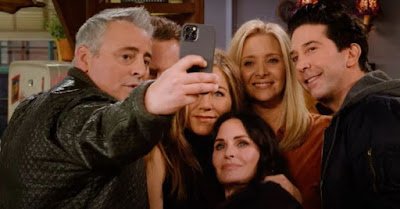“COPROLITE” was the word that sprang to the mind of Paora Stanley, chief executive of Ngāi Te Rangi. Although unsurprised by the behaviour of some of the 300-strong crowd who had turned out to the founding meeting of the Tauranga Ratepayers Alliance, their vicious heckling of Kim Williams, chair of the Alliance’s steering committee, as she attempted to greet her audience in Maori, constituted a “sad indictment on them and the city”. (Coprolite, for those who don’t know, is what archaeologists call fossilised shit.)
Stanley may be a little hopeful in describing the sort of folk who shouted-down Williams with cries of “Speak English!”, “We don’t want to hear that!” “Sit down!”, as fossils. It may simply be the case that, in a city like Tauranga – for many years the home of a particularly outspoken brand of Kiwi conservatism – the hecklers believed themselves socially licenced to respond in the way they did. Certainly, many of these folk may be old: reflective of a time when Tauranga was the “retirement capital” of New Zealand. Some of them may even have been fervent supporters of Tauranga’s erstwhile MP, Winston Peters, and his NZ First Party. But to assume that every heckler in the auditorium was a political fossil is surely a little heroic?
There is a strong political assumption across pretty much the whole of the mainstream news media, that racist, anti-Maori and white supremacist views are confined to the benighted inhabitants of rural and provincial New Zealand. That only in the sort of far-flung places one glimpses in the Steinlager advertisements is it still possible to find folk willing to express racist opinions out loud. For “woke” New Zealand, Tauranga is the epitome of provincialism: a centre that went from small town to big city without passing through any of the civilising experiences that dignified Auckland, Wellington, Christchurch and Dunedin. In the eyes of these sophisticates, Tauranga is what Hamilton would have been like without the University of Waikato.
If only New Zealand’s political geography was so simple. Provincialism, however, is a state of mind, not a postal code. Racist views cannot be neatly corralled in the “heartland” so beloved of advertising executives. It lives and breathes just as vigorously in the suburbs of all our major cities – and is certainly not confined to this country’s burgeoning archipelago of retirement villages.
In metropolitan New Zealand, however, it would be most unusual to encounter anything as unselfconscious and virulent as the recent outburst in Tauranga. In the big cities, any such expression would attract instant retribution. In the big cities, racists have learned to censor themselves. Only among people they trust absolutely, do they feel free to say what they feel.
This is, of course, a much more dangerous problem than the honest and open expression of racist attitudes supposedly encountered in your nearest country pub. New Zealand risks becoming a nation of “Stepford Citizens”: people who smile politely, nod encouragingly, and recite word-perfectly the bi-cultural and multi-cultural slogans of their masters. Harmless enough, you might think. And so they tend to be, right up until the day the equivalent of a Donald Trump happens by with a whole new line of behavioural software.
Or, to put it another way: How likely is it that the nation which is happy to arrest and incarcerate Maori out of all proportion to their numbers; the nation which mentally replaces the word “beneficiary” with the word “Maori”, and then waxes eloquent on the moral deficiencies of all such bludgers, fraudsters and deadbeat-dads; is truly the tolerant and progressive nation its Stepford Citizens proclaim it to be?
Indeed, turning the whole proposition around, why is New Zealand’s political class so ruthless in its policing of ordinary citizens’ thoughts and expressions, if the racist cohorts of the population are, allegedly, dwindling rapidly in number and power? What would be the point of hate speech laws in a country whose younger generations are entirely at ease with the sorts of changes championed in the He Puapua Report? Why seek to curtail freedom of expression when, far from threatening to poison the political discourse, free-speakers are only likely to expose the wholesomeness of their ideals? One does not build a wall if there is nothing and no one to fear living on the opposite side.
Apropos of which, was it not the contention of Marama Davidson and Golriz Ghahraman, speaking in the Domain to the thousands of Aucklanders who had gathered to express their sorrow and solidarity with the victims of the Christchurch mosque attacks, that the actions of the lone terrorist represented only the tip of the spear of the white supremacist ideology that lies at the heart of colonisation? And, why on earth would the Ministry of Education sanction courses designed to confront “White Privilege”, if racism was not an all-pervading evil of New Zealand society?
Either, racism is a coprolitic throwback: a fast-disappearing affliction restricted to the sort of “crusties” who heckled Kim Williams in Tauranga. Or, it is an all-pervading evil that must be confronted unflinchingly at every level of our society. What it cannot be, is both. Moreover, whatever it turns out to be: failing-fast, or fuelling-up; it cannot be dealt with successfully by suppression.
To their credit, the authors of He Puapua, two of whom fronted-up on TVNZ’s Marae programme on Sunday, 30 May 2021, are consistent in their call for a “mature conversation” about the ideas contained in their report. What the producers of the show, and the New Zealand news media generally, need to grasp, however, is that one cannot have a “mature conversation” if the only people invited to participate are all of the same mind. Nothing is more likely inflame public opinion than a well-justified belief that only one version of the story is being told.
It is worth recalling that the catalysing issue behind the turnout of 300 ratepayers in Tauranga was the Labour Government’s decision to unseat the Tauranga City Council and replace it with commissioners, whose first major decision was to impose a swingeing 17 percent rate increase on the city’s residents. It is not difficult to join the dots between the audience’s anger at losing the right to set their own rates, and what they saw as the equally high-handed imposition of Maori language and culture upon citizens with little liking for either.
Racism is not defeated by such methods. To defeat racism it is necessary to let people see it in all its ugliness – as they did in the reports of that Tauranga meeting. To construct a bi-cultural constitution, one must not only advance the arguments in its favour; one must also allow people to hear the arguments against.
When the Commissioner of Public Safety for Birmingham, Alabama, Bull Connor, ordered his police to turn firehoses on African-American children in their Sunday best; when Alsatian dogs were set upon unarmed civil-rights protesters; who got the better of the argument? When bulldozers flattened the wharenui on Bastion Point, what was it that New Zealanders witnessed?
The most effective case to be made against racism and white supremacy is simply, and always, to allow people to look upon its face.
This essay was originally posted on the Interest.co.nz website of Monday, 31 May 2021.












